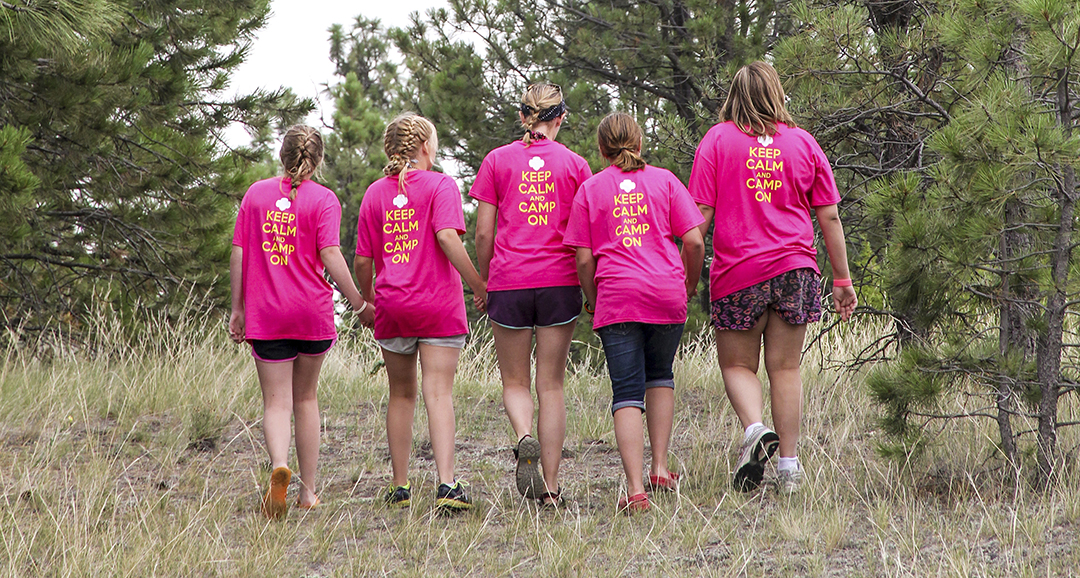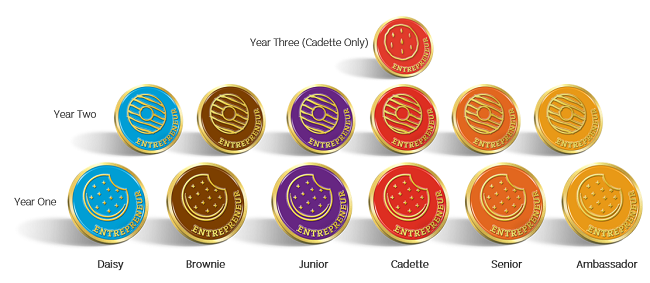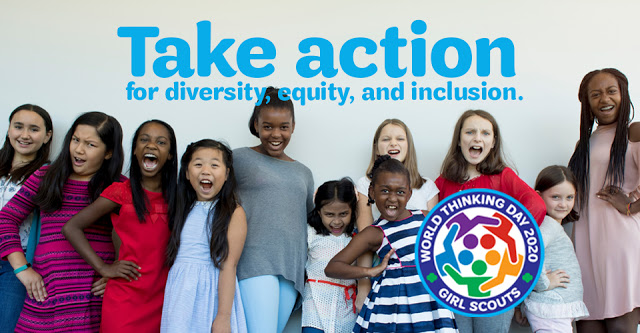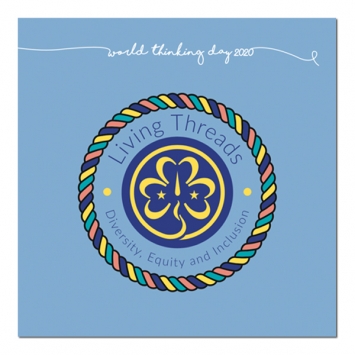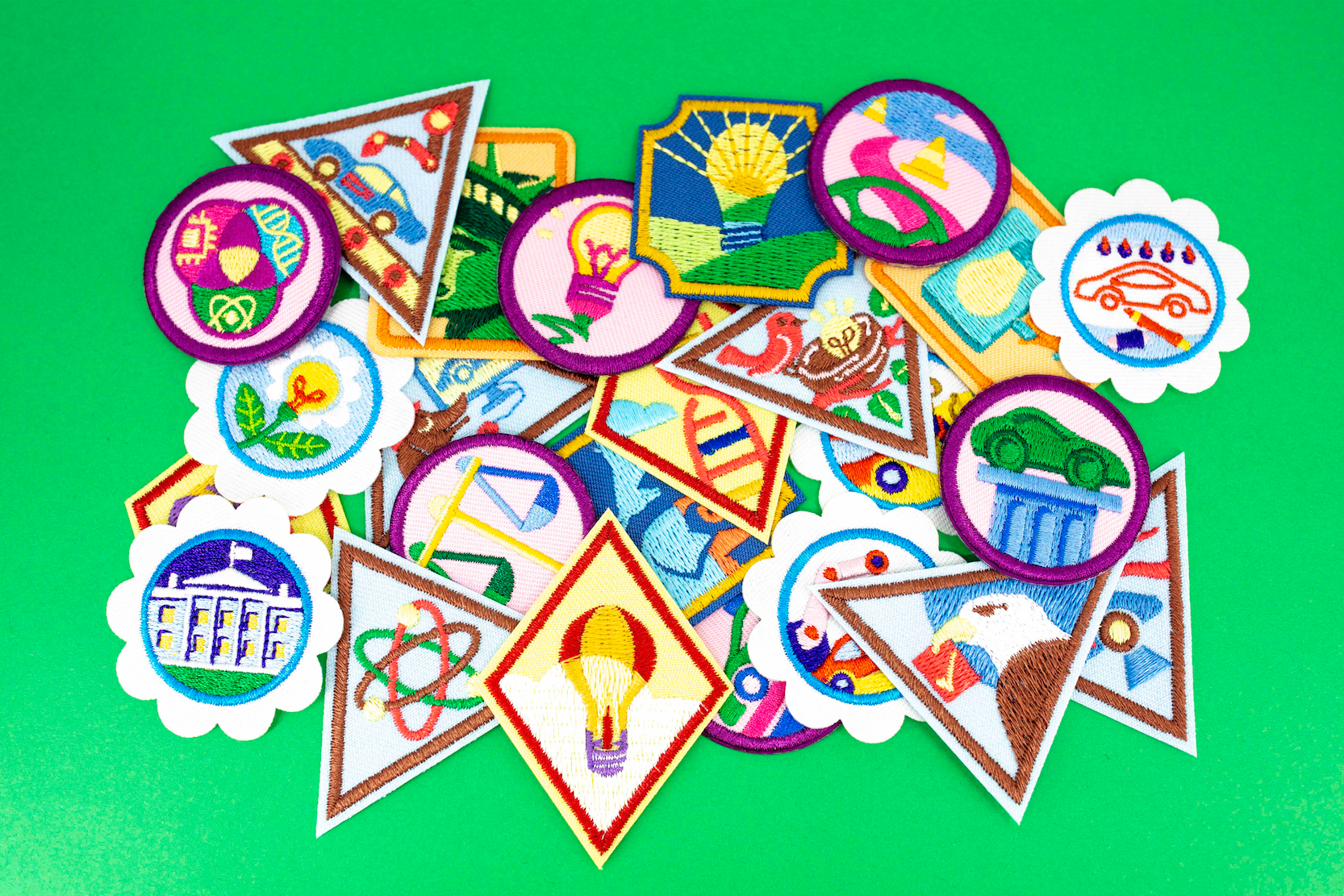 Activities for Kids
Activities for Kids
New Girl Scout Badges Announced for 2020-2021!
Click here to get this information in a downloadable/saveable/printable PDF format.
Entrepreneur Badges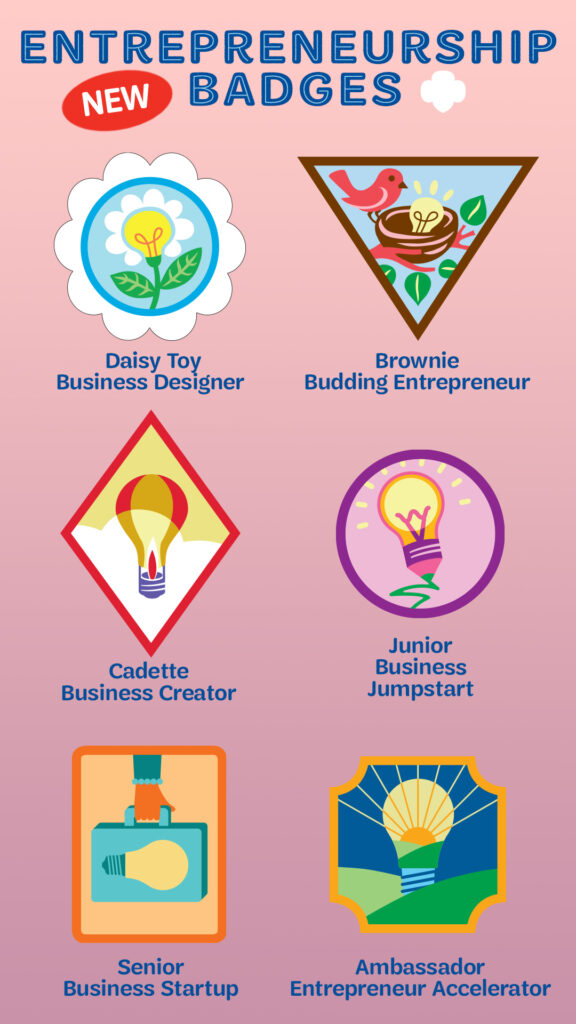
Toy Business Designer Daisies come up with an idea for a toy, design it, make it better, and share it—just like entrepreneurs!
Budding Entrepreneur Brownies become entrepreneurs by making something, testing it out, and improving their idea to make it the best it can be.
Business Jumpstart Juniors sharpen their entrepreneurial skills as they come up with an idea for something that solves a problem, get feedback, share their idea, and pitch it to others.
Business Creator Cadettes think like entrepreneurs as they come up with a business idea that solves a problem, produce a prototype, solicit feedback, improve their idea, then create a business plan and pitch it.
Business Startup Seniors learn more about the entrepreneurial mindset as they explore what it takes to create their own business.
Entrepreneur Accelerator Ambassadors think and act like entrepreneurs as they bring a business vision to life, learn how to work with a team, and motivate people to take a chance with them.
Access the Badge Requirements
- In the Volunteer Toolkit (free!) in 2 meeting plans
- Hard-copy badge booklet ($2.50 each)
- available via online shop or in Council Shops mid-August
- Digital download badge booklet PDF ($0.99 each)
Get the badge: available via online shop or in Council Shops ($3.00)
Mark Your Calendar
For these virtual events for girls:
- July 22—Awesome Girls: Meet a Toy Business Boss (girls in grades 2–5)
- July 23—Awesome Girls: Meet a Toy Business Boss (girls in grades K–1)
- July 24—Awesome Girls: The Business of Big Ideas (girls in grades 6–12)
Click here to get this information in a downloadable/saveable/printable PDF format.
STEM Career Exploration Badges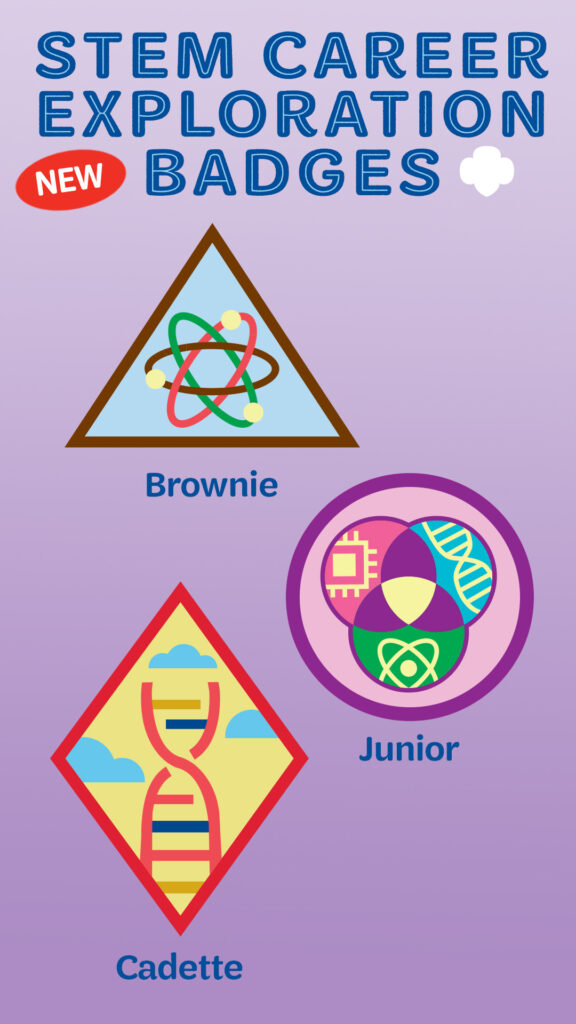
One badge per level for Brownies, Juniors, and Cadettes
Girls explore their own interests, how those connect with different STEM careers, and how they can use STEM to make a difference. They look at different fields and careers in STEM and create a plan for how they’ll make the world a better place. The badges are “Unplugged” but include optional “Plugged” and in-person components to amplify the activities.
Access the Badge Requirements
- In the Volunteer Toolkit (free!) in 2 meeting plans
- Hard-copy badge booklet ($2.50 each)
- available via online shop or in Council Shops mid-August
- Digital download badge booklet PDF ($0.99 each)
Get the badge: available via online shop or in Council Shops ($3.00)
Mark Your Calendar
For these virtual events for girls:
- July 27—Find Your STEM Spark (girls in grades 2-5)
- July 30—Invent Your Future with STEM (girls in grades 6–8)
Click here to get this information in a downloadable/saveable/printable PDF format.
Automotive Engineering Badges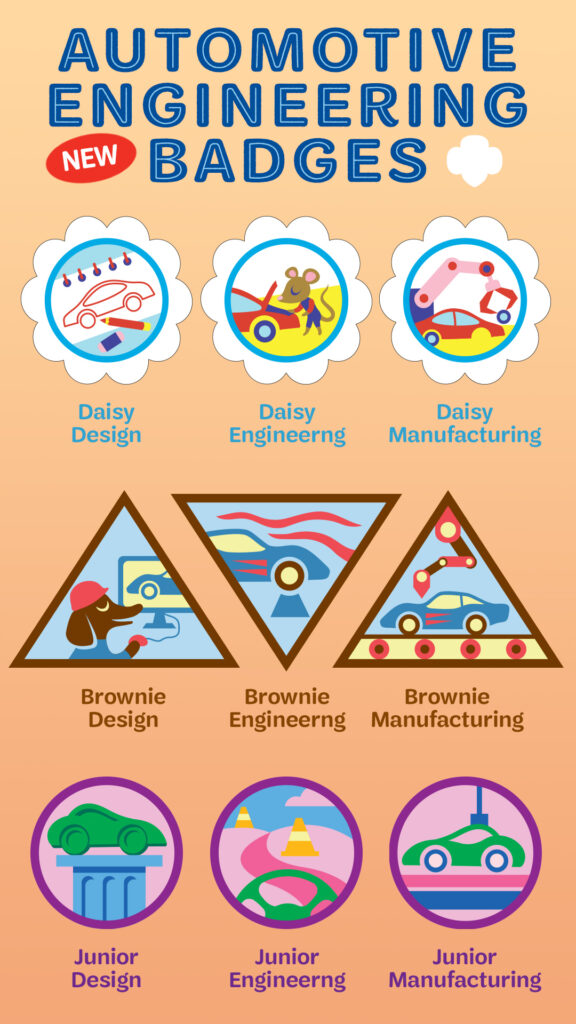
Three progressive badges per level for Daisies, Brownies, and Junior. Girls earn these badges in a particular order.
Girls learn how vehicles are designed, engineered, and manufactured. In each of the badges, they design and build vehicle prototypes that meet sets of criteria and solve problems for others.
Access the Badge Requirements
- In the Volunteer Toolkit (free!) in 2 meeting plans each
- Hard-copy badge booklet ($5.00 for 3-badge pack)
- available via online shop or in Council Shops mid-August
- Digital download badge booklet PDF ($1.99 for 3-badge pack)
Get the badge: available via online shop or in Council Shops ($3.00)
Mark Your Calendar
Week of August 3:
- In three events for Daisies/Brownies/Juniors, women who work for General Motors in the areas of design, engineering, and manufacturing will talk about how cars get made.
- A bonus Daisy/Brownie/Junior event will feature GM CEO Mary Barra in conversation with GSUSA’s Sylvia Acevedo.
- Details to be announced
Click here to get this information in a downloadable/saveable/printable PDF format.
Civics Education Badges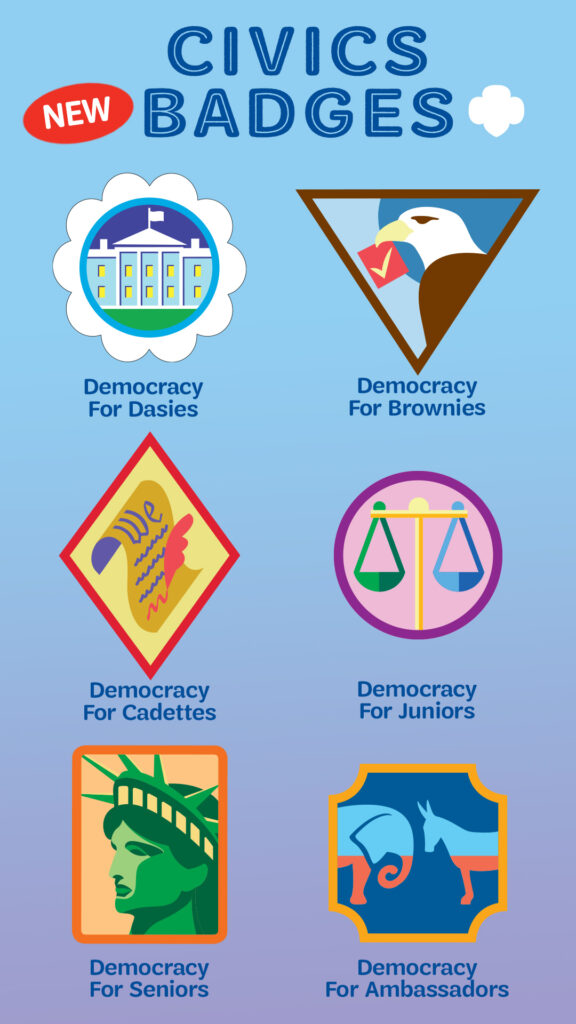
Democracy for Daisies Daisies begin learning about the people who work together in their government.
Democracy for Brownies Brownies find out how people in the government decide what rules are made and how they are followed.
Democracy for Juniors Juniors learn more about how their government works—from their town or city to the whole country.
Democracy for Cadettes Cadettes find out new things about their government—how each branch works, how they work together, and how each piece makes a difference in society.
Democracy for Seniors Seniors expand their knowledge about how their local, state, and national government works.
Democracy for Ambassadors Ambassadors become experts on local, state, and national government—and prepare to use that knowledge to inform their voting.
Access the Badge Requirements
- In the Volunteer Toolkit (free!) in 2 meeting plans
- Hard-copy badge booklet ($2.50 each)
- available via online shop or in Council Shops mid-August
- Digital download badge booklet PDF ($0.99 each)
Get the badge: available via online shop or in Council Shops ($3.00)
Mark Your Calendar
Week of August 10:
- In one event for Daisies/Brownies/Juniors and one for Cadettes/Seniors/Ambassadors, inspiring civically active women will talk about the importance of civic engagement and how girls can use their voices to make a difference.
- Details to be announced
Click here to get this information in a downloadable/saveable/printable PDF format.
2021 Global Awards
2021 World Thinking Day Award
On February 22 of each year, Girl Scouts and Girl Guides around the world celebrate World Thinking Day by doing the same activities around a shared theme. The World Thinking Day 2021 theme is Peacebuilding. This year, girls will celebrate what it means to be a peacebuilder in the context of the Global Movement. They’ll expand their understanding of these concepts, practice the skills to resolve conflict in peaceful ways, and take action to make their world and communities more peaceful places. Although World Thinking Day is February 22, girls can earn this award at any point during the year!
Access the Award Requirements
- In the Volunteer Toolkit (free!) in 2 meeting plans
Get the award: available via online shop or in Council Shops ($3.00)
2021 Global Action Award
Every year, the Girl Scout Global Action award addresses the United Nations Global Goals for Sustainable Development. In 2021, the award focuses on Sustainable Development Goal 13: Climate Action. Girls can earn their Global Action Award by discovering what climate action means, connecting with the issues in their community and around the world, and completing a Take Action project to make the world a more sustainable place.
Access the Award Requirements
- In the Volunteer Toolkit (free!) in 2 meeting plans
Get the award: available via online shop or in Council Shops ($3.00)




